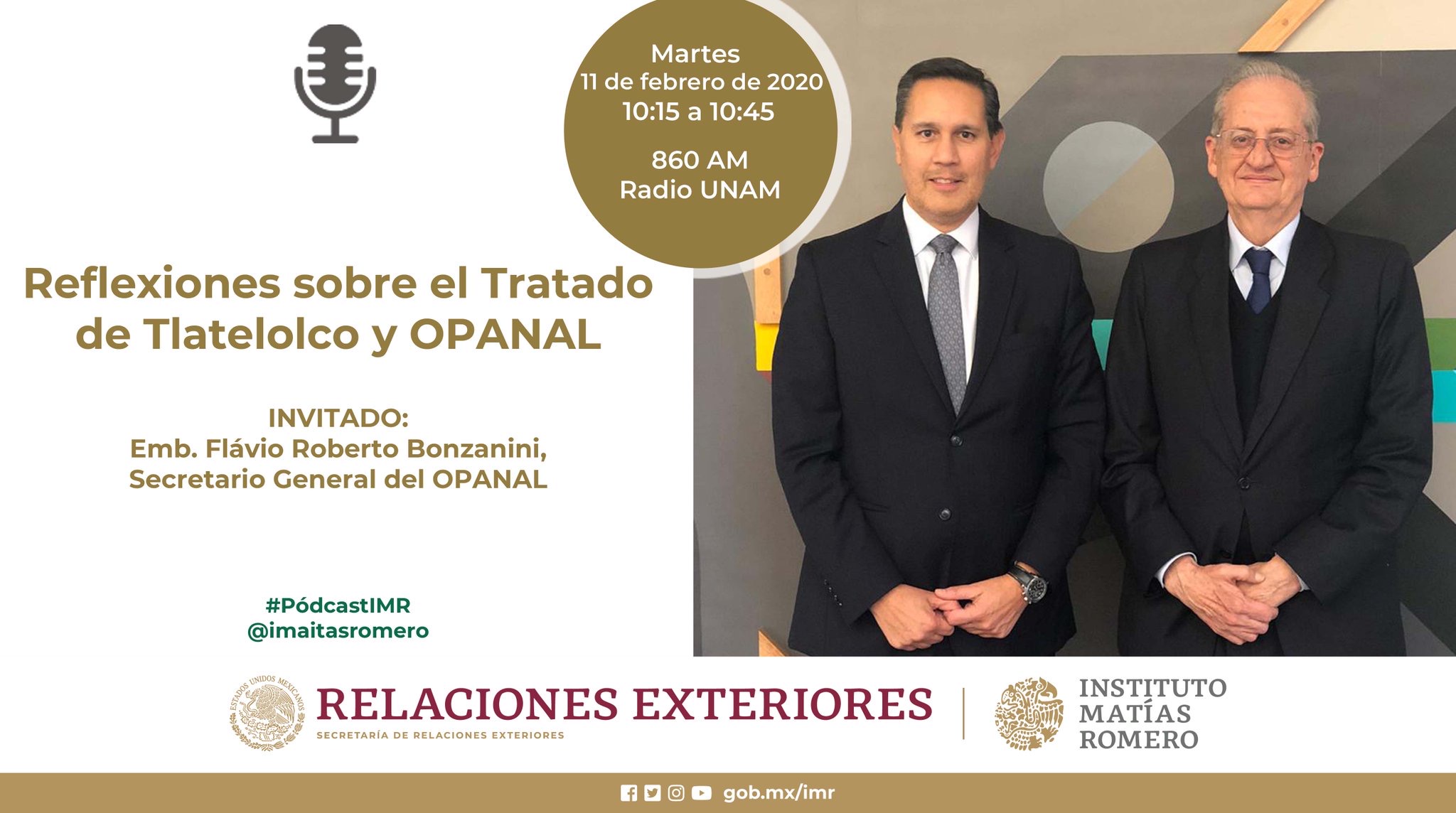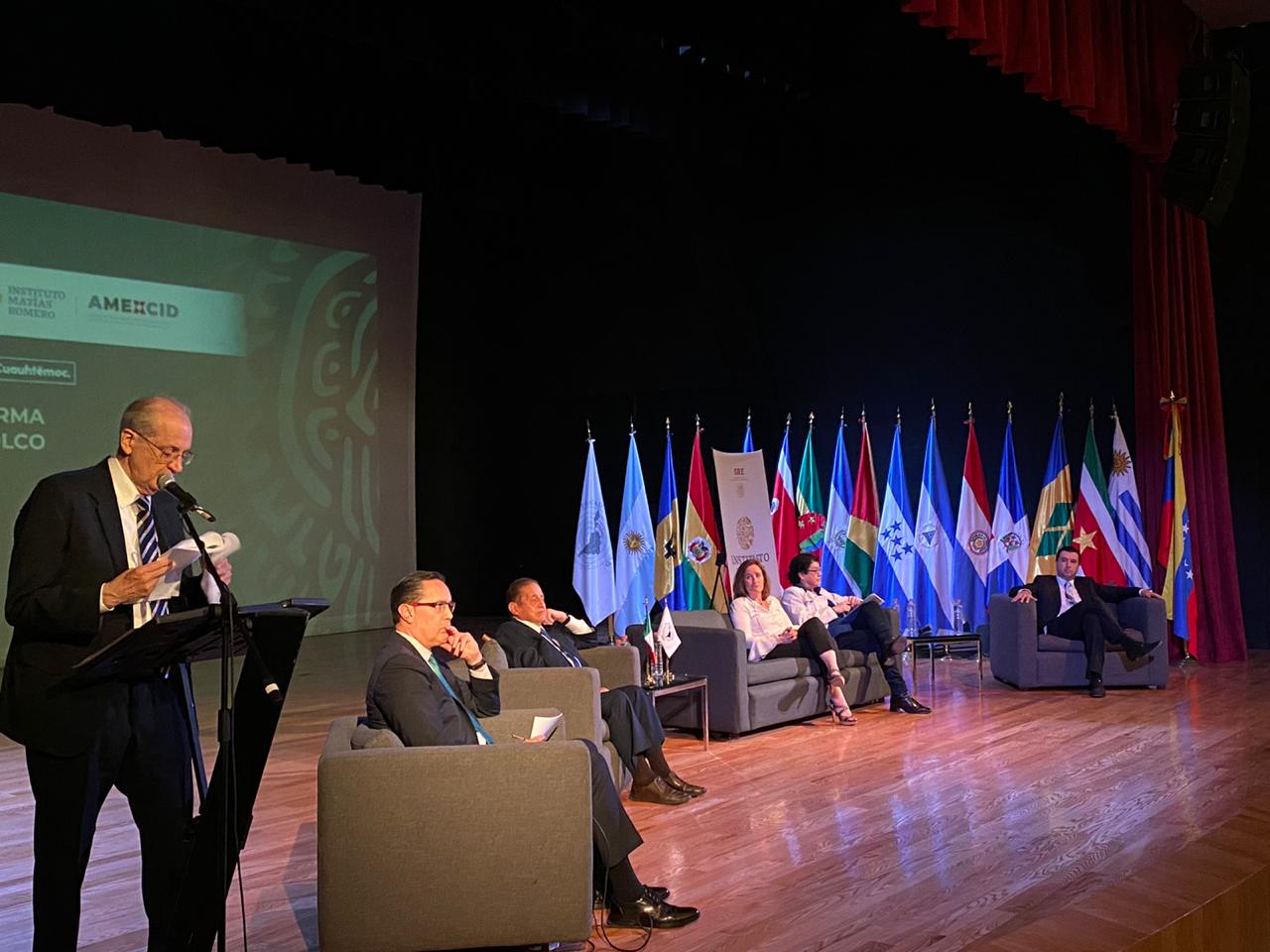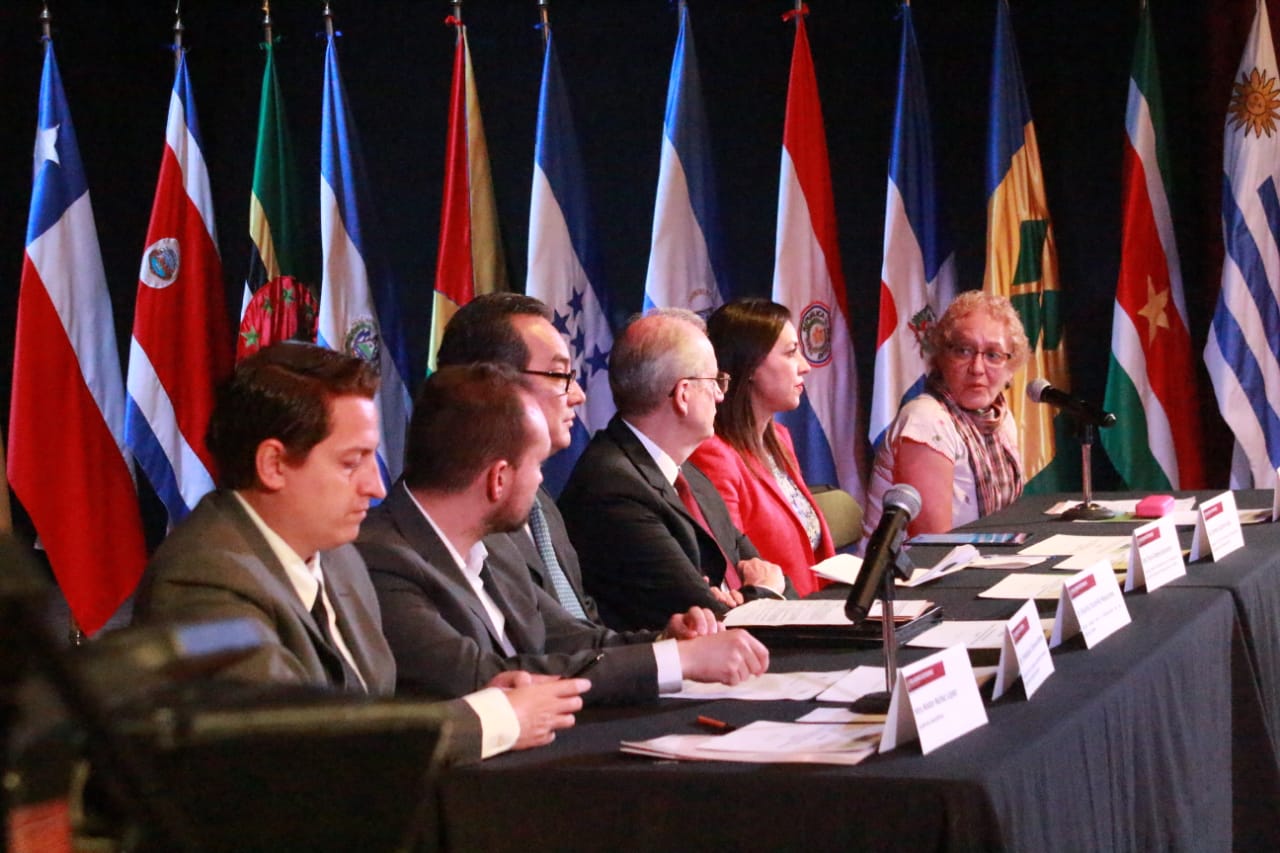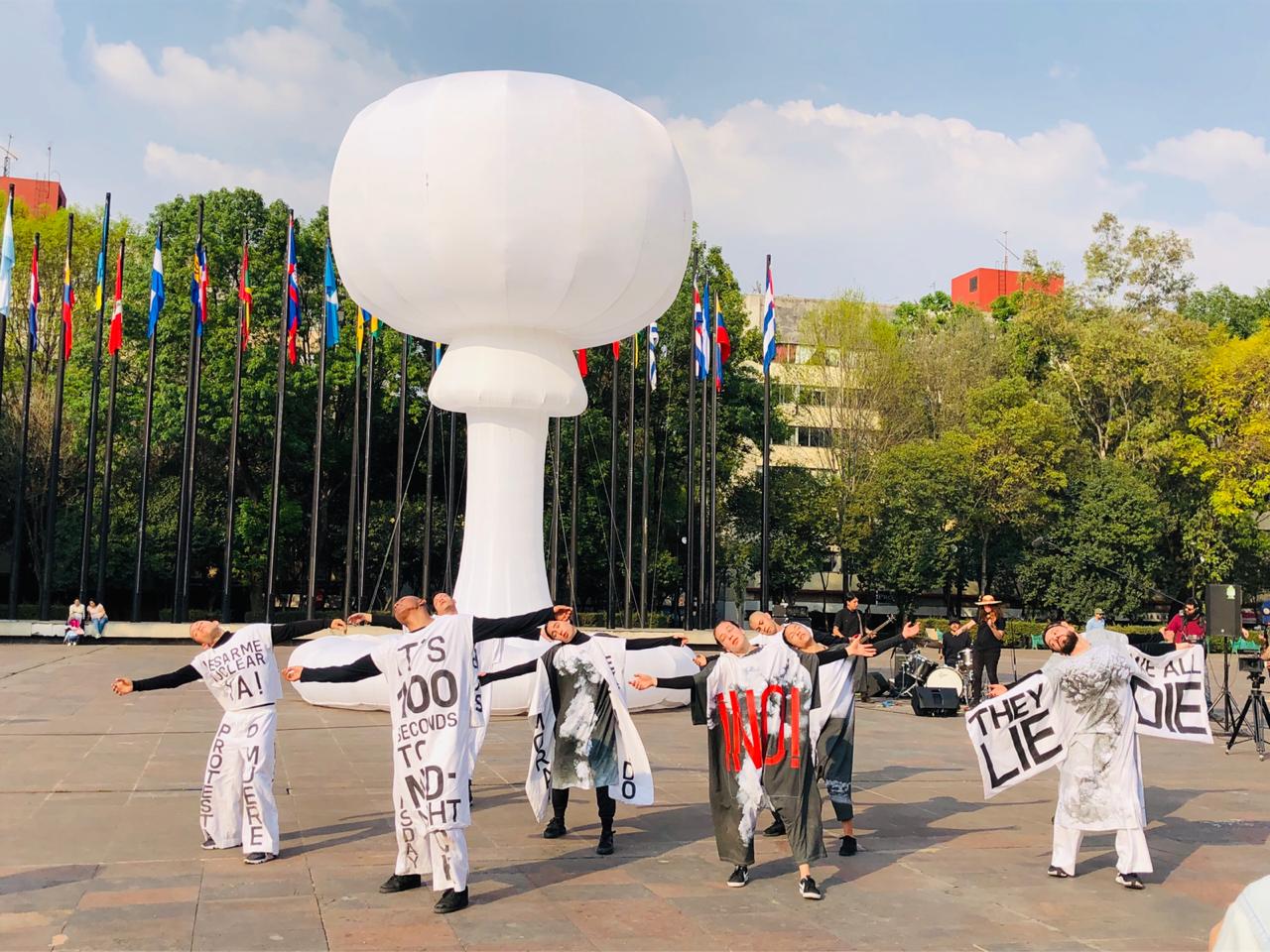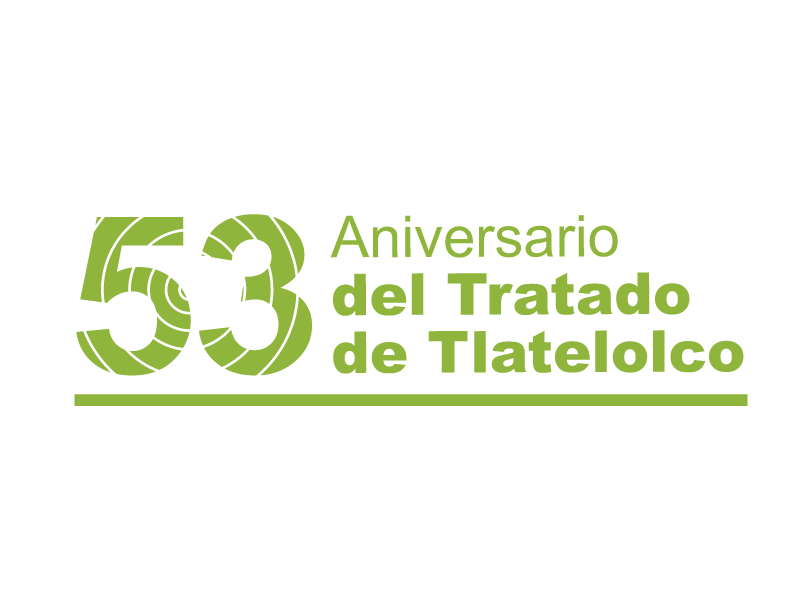 On 11, 13 and 14 February 2020, the 53º anniversary of the opening for signature of the Treaty for the Prohibition of Nuclear Weapons in Latin America and the Caribbean (Treaty of Tlatelolco) was celebrated.
On 11, 13 and 14 February 2020, the 53º anniversary of the opening for signature of the Treaty for the Prohibition of Nuclear Weapons in Latin America and the Caribbean (Treaty of Tlatelolco) was celebrated.
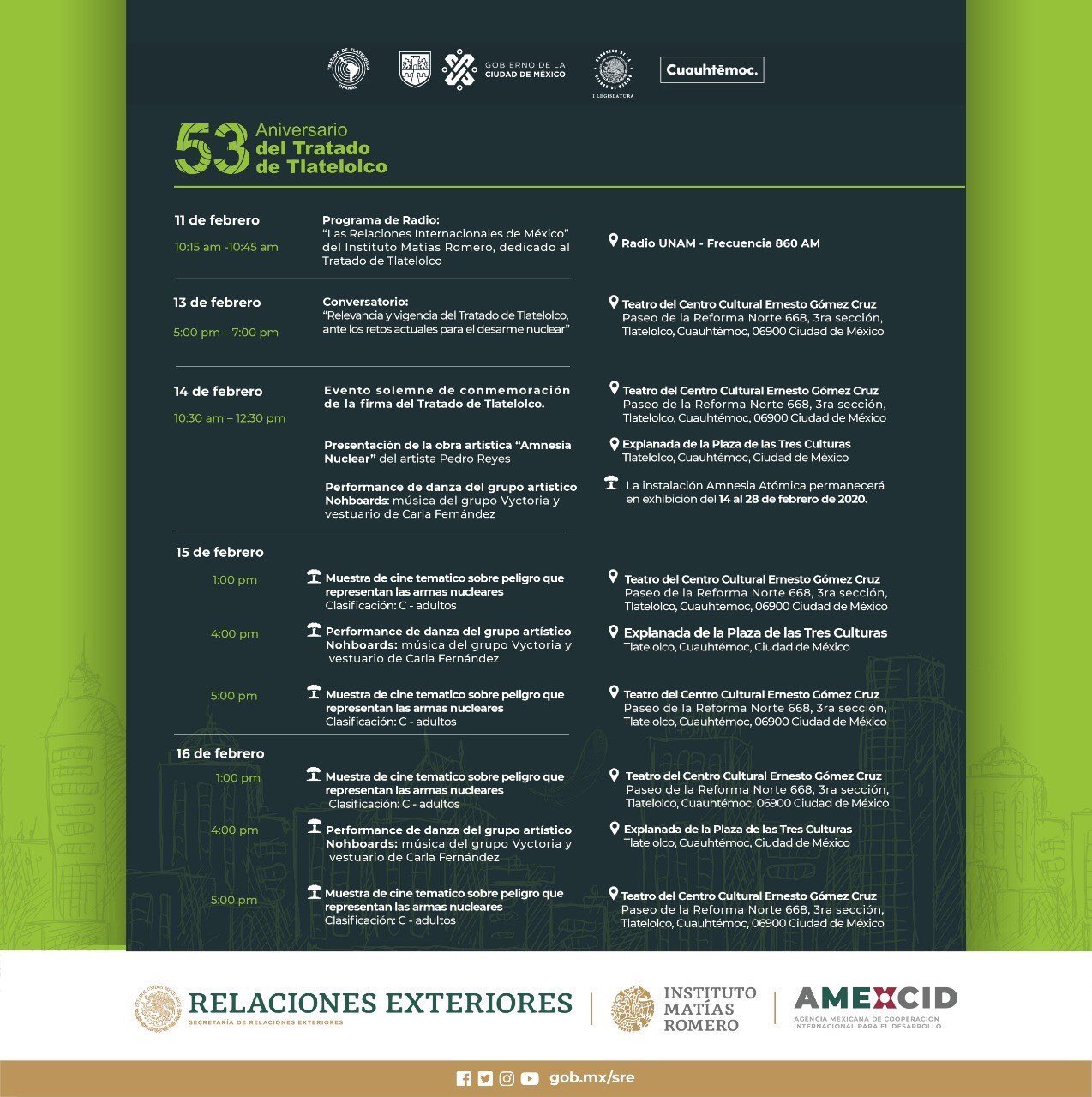
Official program of activities of the 53º anniversary of the Treaty of Tlatelolco. Source: General Directorate of Social Communication of the Ministry of Foreign Affairs of Mexico.
1.Communiqué of Member States on the 53º anniversary of the Treaty of Tlatelolco
In the framework of the celebrations, Member States of OPANAL issued a joint communiqué in which, besides of stressing that the Treaty of Tlatelolco created the first Nuclear-Weapon-Free Zone in a densely populated area, they emphasized that:
"Nuclear-Weapon-Free Zones promote peace and stability at the regional and international levels by prohibiting the possession, acquisition, development, testing, manufacturing, production, stockpiling, deployment and use of nuclear weapons; and reaffirm the supremacy of verifiable, irreversible, transparent and complete nuclear disarmament; and reiterate that the only guarantee against the use or threat of use of nuclear weapons is their total elimination.” (operative paragraph 6)
In addition of reiterating their commitment to continue promoting the dialogue and cooperation among Nuclear-Weapon-Free Zones, including Mongolia, for the convening on April 24 of the Fourth Conference of States Parties and Signatories to Treaties that establish Nuclear-Weapon-Free Zones and Mongolia, Member States also stressed their determination to work in favor of and to contribute to the success of the 2020 NPT Review Conference which will be held from 27 April to 22 May.
Likewise, they stressed:
“their great concern about the prevalent international situation, which is characterized by the increasing threat of use of nuclear weapons in a context of geopolitical tensions and armed conflicts and threats of terrorism, that occurs when there still are States possessing nuclear weapons, many of those on alert status. In that regard, firmly demand that nuclear-weapon States cease the qualitative improvement and modernization programs of their nuclear arsenals, the development of new types of such weapons and of new scenarios and procedures for the development and employment of new types of such weapons, which is inconsistent with the spirit and objective of the Treaty on the Non-Proliferation of Nuclear Weapons.” (operative paragraph 14)
2. Radio Program “The International Relations of Mexico” of the Institute Matias Romero
On 11 February 2020, the Secretary-General of OPANAL, Ambassador Flávio Roberto Bonzanini, participated in the radio program entitled “The International Relations of Mexico” (radio station 860 AM – Radio UNAM) where he talked about the history of the Treaty of Tlatelolco alongside the General Director of the Institute Matias Romero, Mr. Alejandro Alday.
Both diplomats reflected on the international context that lead to the necessity of adopting a legally binding international instrument, such as the Treaty of Tlatelolco, that set a basis for other regions to follow suit on the establishment of Nuclear-Weapons-Free Zones in densely populated areas.
On the current challenges, among which is the building of a culture of peace, the General Director of the Institute Matias Romero mentioned that “it is necessary to remember the risk and the catastrophic consequences that the use of nuclear weapons can have.”
Regarding the education for disarmament and nonproliferation of nuclear weapons, the Secretary-General of OPANAL noted that:
“these are elements that are promoted actively in the Agency through the annual courses of OPANAL, already implemented in four countries in Latin America. Also, through the Summer School that is jointly organized with the Institute Matias Romero and the James Martin Center for Nonproliferation Studies, and with the Internship Program and study visits by college students to the Headquarters.”
Ambassador Bonzanini mentioned the elements needed to advance disarmament policies at an international level and in an effective way:
“Nuclear-Weapon States must eliminate any role of nuclear weapons in their security doctrines and policies. Non-Nuclear-Weapon States that are covered by extended nuclear deterrence policies by means of military alliances must seek alternative security policies, in accordance with the Treaty on the Non-Proliferation of Nuclear Weapons (NPT). It is in the interest of the own survival of humankind that nuclear weapons are never used again, under any circumstance.”
3. Discussion on the “Relevance and effectiveness of the Treaty of Tlatelolco in light of the current challenges for nuclear disarmament”
On 13 February, the Institute Matias Romero together with the Municipality Cuauhtémoc and the Government of Mexico City held a discussion that evolved around the following questions:
- What can we learn of the success of the Treaty of Tlatelolco after five decades of its signature?
- How can we target new audiences in order to reduce or eliminate the threat of nuclear weapons?
- What kind of global responses are necessary and plausible?
- What are the risks for humankind if we fail to continue what Mexico created in 1968?
The Secretary-General of OPANAL, Ambassador Flávio Roberto Bonzanin; Emeritus Ambassador of Mexico, Sergio González Gálvez; Dr. Maria Cristina Rosas, President of the Research Center for Peace, Security and Development Olof Palme A.C.; Rafael Media Martínez, President of the Diplomatic Foundation Alfonso García Robles A.C., Rachel Bronson, President of the Bulletin of the Atomic Scientists; and Alejandro Alday, General Director of the Institute Matias Romero, participated in the discussion.
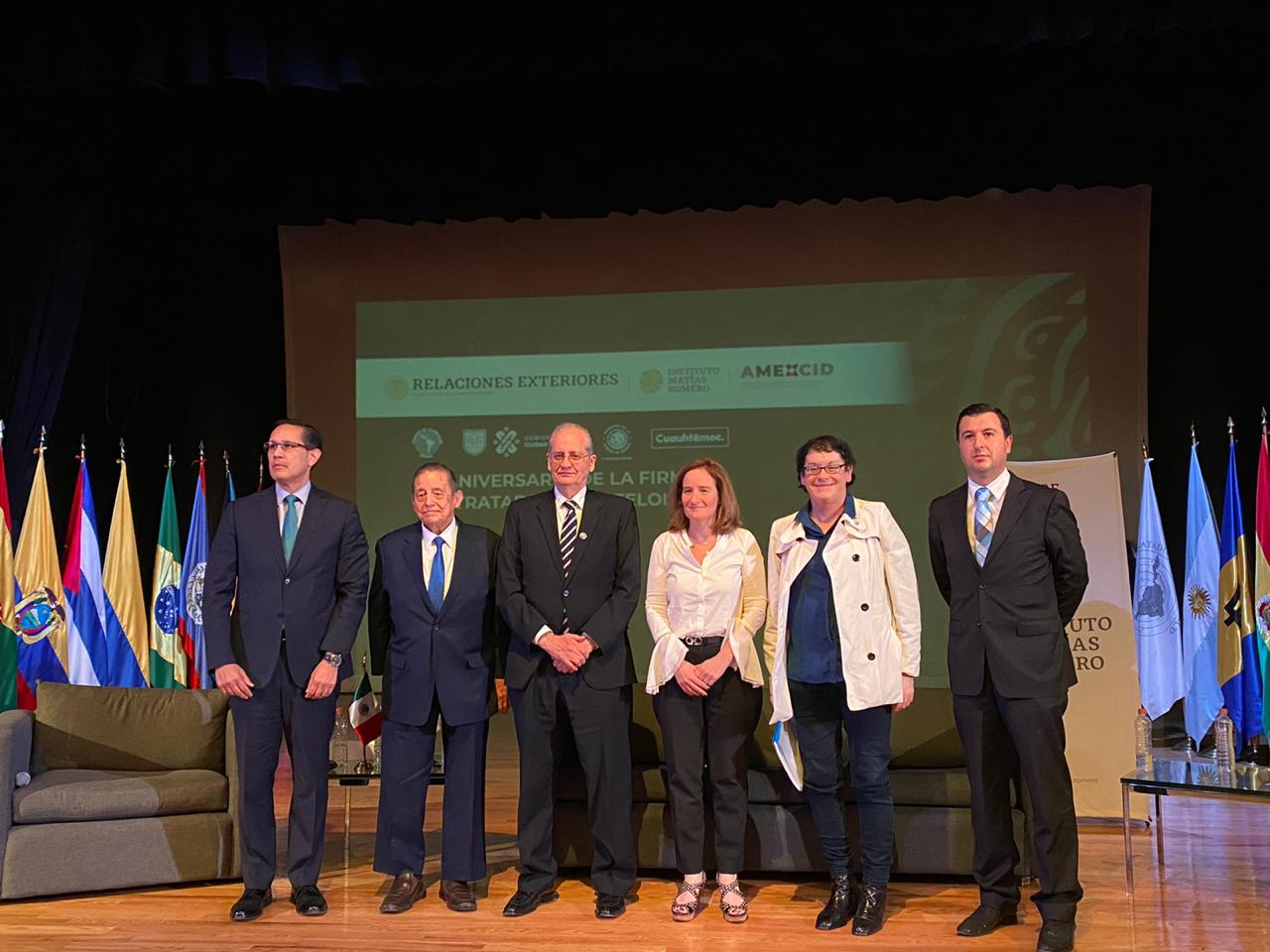
Left to right: Alejandro Alday General Director of the Institute Matías Romero), Emeritus Ambassador of Mexico, Sergio González Gálvez, Ambassador Flávio Roberto Bonzanin (Secretary-General of OPANAL), Rachel Bronson (President of the Bulletin of the Atomic Scientists), Dr. Maria Cristina Rosas (President of the Research Center for Peace, Security and Development Olof Palme A.C.) and Rafael Media Martínez (President of the Diplomatic Foundation Alfonso García Robles A.C.). Photograph by OPANAL.
In his statement, the Secretary-General mentioned four elements in which OPANAL contributes to face the current challenges in disarmament and nonproliferation: first of all, the manifestation in consensus of the regional positioning in terms of disarmament and nonproliferation; second of all, with the participation of the Agency in international forums where these topics are discussed; third of all, with dialogue and partnership with other Nuclear-Weapons-Free Zones; and finally, with the education for disarmament and nonproliferation.
The Secretary-General finished his statement with the following message:
“Finally, I would like to reiterate that all 33 countries of Latin America and the Caribbean are Party to the Treaty of Tlatelolco and therefore, Members of OPANAL. They all participate in the regular sessions of its bodies. The Treaty of Tlatelolco continues to be a space where, despite the differences of each country, all States of the region pronounce themselves as one and stand together in the matters of concern of the Treaty. They also work together, as a region, in this fundamental matter for the survival of humankind: the total elimination of nuclear weapons.”
4. Commemorative event of the opening for signature of the Treaty of Tlatelolco
On 14 February, a commemorative event took place at the Theater Ernesto Gomez Cruz of the Cultural Center Tlatelolco.
The attendees of the event were Representatives of Member States of OPANAL, members of the diplomatic corps, officers of the Ministry of Foreign Affairs of Mexico and the Government of Mexico as well as students, friends and neighbors of Tlatelolco.
During the opening ceremony, the following speakers delivered statements in regard of the anniversary: the Secretary-General of OPANAL, Ambassador Flávio Roberto Bonzanin, Mr. Nestor Nuñez Lopez, Mayor of Cuauhtémoc, Congresswoman Jannete Guerrero Maya, Congressman Temistocles Villanueva Ramos, Dr. Diana Alarcón Gonzalez, coordinator of Advisors and Foreign Affairs of the Government of Mexico City, and the Director General for the Organization of the United Nations, Dr. Eduardo Jaramillo Navarrete.
In his statement, the Secretary-General referred to the current political context, noting that:
“Living in such dangerous times as we live nowadays, when the nuclear super-powers are modernizing their arsenals and do not have the will to sign or renew the agreements reducing their atomic arsenals, it is our region’s duty, as the first Nuclear-Weapon-Free Zone in a densely populated area, to promote peace and a nuclear-weapon-free world.”
Furthermore, he mentioned that:
“This day [14 February], on the 53º anniversary of the Treaty of Tlatelolco, I want you to remember that the only assurance that nuclear weapons are never used again is nuclear disarmament under effective international control. Thus, we have to honor the contribution of our region to international peace and security.”
Once in the square of Plaza de las Tres Culturas, an official photograph of the Representative of Member States of OPANAL was taken in front of the 33 flags of the Member States.
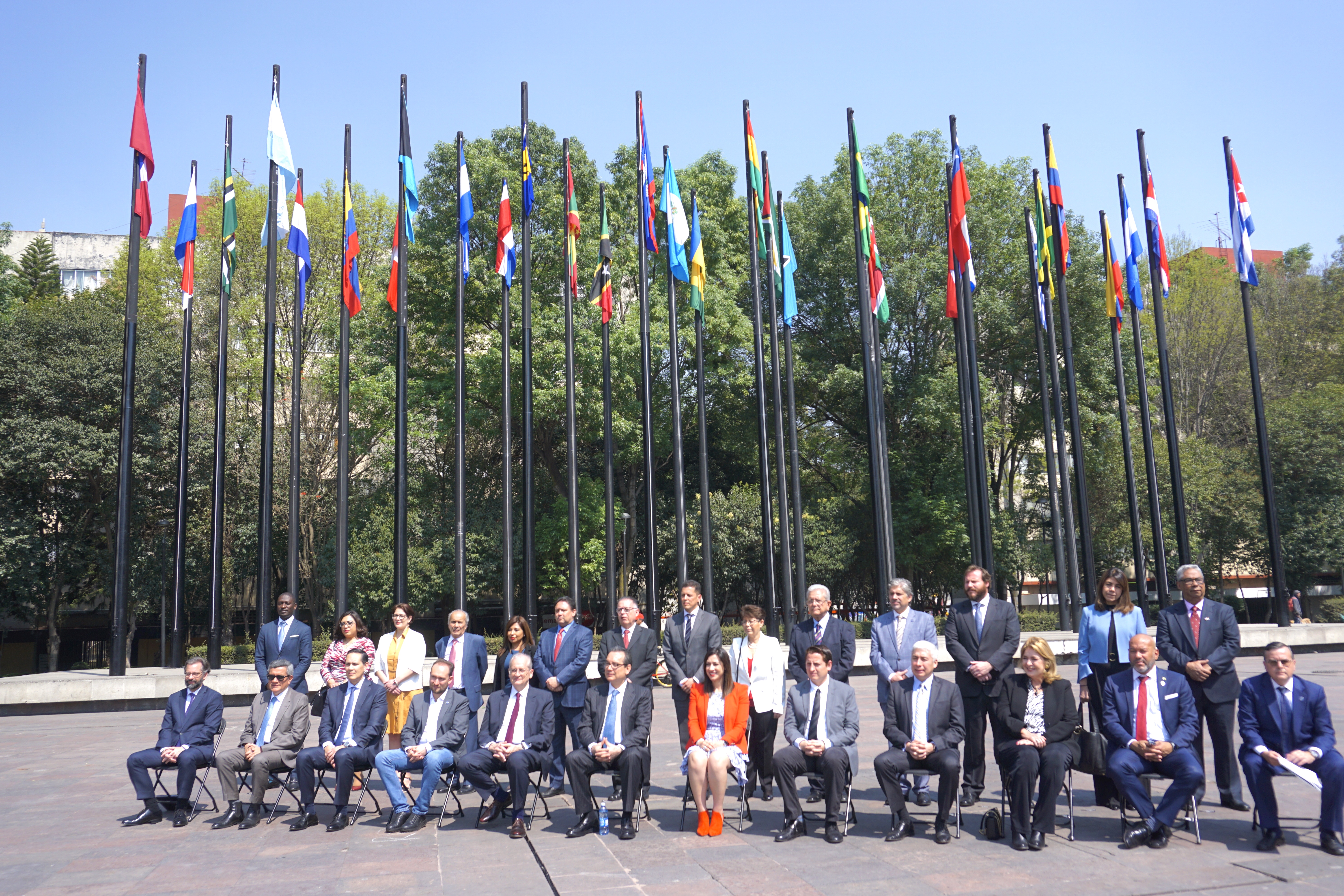
Ambassadors and Representatives of Member States of OPANAL at the Square of Plaza de las Tres Culturas in Tlatelolco. Photograph by OPANAL.
Afterwards, the President of the Council, Ambassador Anibal Cabral, read the Communiqué of Member States on the 53º anniversary of the Treaty of Tlatelolco.
Then, the mega-sculpture “Amnesia Atómica” by artist Pedro Reyes was inaugurated. Minutes after, special guests, neighbors and friends of Tlatelolco enjoyed the performance of the dance company “Nohbord” accompanied by the music group “Vyctoria”.
Likewise, on 15 and 16 February, neighbors of Tlatelolco joined the small film festival that touched on the dangers that nuclear weapons represent, with several functions throughout the day, as well as performances of the dance and music groups.
